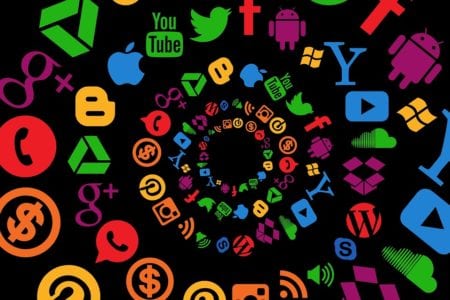 Internet marketing is the implementation of marketing activities and tasks using the Internet.
Internet marketing is the implementation of marketing activities and tasks using the Internet.
Internet marketing for the successful implementation of the strategy and the achievement of the goal set for a specific project uses various communication tools. For the correct selection of tools (combination of tools), Internet marketing requires a marketing analysis of the project, a clear statement of purpose and a systematic approach to the implementation of the strategy developed.
Internet Marketing Tools
1. Website
The main tool of Internet marketing is a website.
The creation of a website, its correct positioning on the Internet and reasonable use give the owner enormous opportunities and prospects:
strengthening the image and position of the company in the market;
implementation of operational marketing and sales activities;
fostering successful competition in the market;
creation of a favorable ground for further activities and development of the company.
Most Internet marketing tools have an intermediate or ultimate goal of attracting users to the company’s website.
2. Search engine marketing (website promotion)
Most Internet users start searching for a product of interest from a query in the search engine. Using such Internet marketing tools as search engine optimization and search advertising, the website gets the opportunity to be placed on high positions in search engine results.
Search Engine Optimization (SEO)
The goal of search engine optimization is to attract targeted users from search engines to a website, to organize site content in such a way that it is fully indexed and correctly displayed for each search query.
Search advertising
Text blocks that are placed in search engines and displayed in response to specific user requests are an effective means of attracting users to the website for high-frequency queries.
3. Internet advertising
Internet advertising is highly accurate coverage of the target audience, the ability to flexibly manage the budget and quickly monitor the effectiveness of the advertising campaign. There are two main types: banner and contextual advertising, each of which has its own advantages and specifics of use.
Banner advertising
Used to ensure rapid coverage of the target audience, strengthening the image and recognition of the advertised product.
Contextual advertising
“Intellectual” version of Internet advertising, used to attract the most interested in the product audience. It is shown on Internet resources in reference to their content.
4. Email marketing (direct marketing, direct marketing)
Email Marketing is a personalized e-mail newsletter. It makes it possible to disseminate information at a relatively low cost among a wide range of specific potential customers and monitor their reaction. (Not to be confused with spam – sending unwanted correspondence)
5. Marketing of social relations
Dynamically developing direction of Internet marketing, the methodology of which is to use relations between people to promote products.
Social networks, forums, chats, wiki
Discussion groups located on the servers of online services are the place of formation of communities of interest. They can function as a library, room for chatting (chat room) in real time and even as classified by subject directory of advertisements. Actively used as one of the elements of Internet marketing.
Blogging
Many companies use corporate blogs to publish corporate news, press releases, useful information for customers, and to organize intracorporate communication.
Sites of reviews, ratings
Sites publishing ratings and reviews of independent experts and consumers. Visitors to such sites are employees of representative offices of companies, distributors, retailers and ordinary users who visit the site in search of relevant information.
Online Conferences and Seminars
Represent the versions of the forums, limited to sending and receiving messages on a specific topic. On the Internet, thousands of conferences are held on a wide variety of topics: caring for indoor plants, eating healthy, exchanging views on an event, and so on.
Electronic bulletin boards
Specialized network services, whose activities are dedicated to a specific topic or group.
6. Viral Marketing
Viral marketing is Internet marketing, whose strategy is to develop a “virus” – an interesting advertising message for users, which they themselves convey to each other, perceiving not as advertising, but as entertainment. It differs in avalanche-like distribution of advertising material, which can be:
- provocative article;
- unusual site;
- video;
- cartoon;
- flash game;
- online service;
- hearing, scandal, etc.
7. Online Games
Online games with built-in advertising or branded elements are rapidly gaining popularity, providing numerous opportunities to attract potential customers.
8. Mobile marketing
Mobile devices with Internet access are becoming more widespread, providing Internet marketers with additional opportunities to attract a wide audience. Many websites are developed taking into account the capabilities of mobile devices.
9. Formation of public opinion (PR)
Internet marketing tool aimed at forming a positive image of the company by distributing textual information on third-party resources: distribution of press releases, work in the network press and news resources, custom articles, activity on thematic forums, hidden advertising in blogs, multi-pass loyalty programs and etc.
Each Internet marketing tool has its own peculiarities and specifics, which must be taken into account when choosing an effective tool for each particular project.
Image credit: geralt
